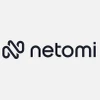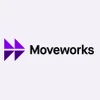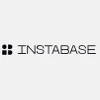Top 7 Agentic AI Systems Transforming Business Automation in 2026

Are repetitive tasks boring you? Want to scale operations without hiring more people?
Or maybe you are tired of AI tools that require too much promotion!
You can be on the list of businesses scaling at a high level and moving toward complete AI automation. Thus, you need AI that can think, plan, and execute.
Enter Agentic AI – a new class of intelligent software that is not just a helper but does everything on its own.
The demand for agentic AI tools is exploding.
According to Statista, the AI software market is expected to generate over $126 billion in annual revenue by 2025, skyrocketing from just $10.1 billion in 2018.

Why? Because businesses want smarter systems. Systems that reason through problems, not just respond to prompts.
In this post, we’ll explore 7 of the most powerful Agentic AI tools changing the workflow of many companies.
Let’s go!
What is an Agentic AI System?
An Agentic AI system is a lot more than a chatbot. It’s an autonomous digital agent that can plan, decide, and act all on its own.
Instead of waiting for constant instructions, agentic AI understands goals and breaks them into tasks. It then uses tools, fetches data, makes decisions, and adapts as needed, just like a human teammate would.
Here’s what sets agentic AI apart:
- Goal-driven: It works toward outcomes, not just answers.
- Multi-step thinking: It can handle complex workflows, not just one-off prompts.
- Autonomous action: It interacts with APIs, software, and other agents to get things done.
Agentic AI systems are built on advanced language models but go far beyond text generation. They combine reasoning, memory, decision-making, and tool use. This makes them perfect for roles like virtual analysts, project assistants, and automation agents.
Suggested Read: Agentic AI: A Complete Guide
Quick Comparison of Best Agentic AI Systems for Automation
Explore this quick comparison to find the best Agentic AI tools that streamline and automate your business workflows efficiently.
| Tool | Key Feature | Best For | Price |
|---|---|---|---|
| AutoGPT | Breaks goals into sub-tasks & executes them | Developers, Researchers | Free* (API usage) |
| AutoGen | Multi-agent collaboration and async messaging | Enterprises, Technical Teams | Free* (infra cost) |
| Relevance AI | No-code AI agent builder with integrations | SMBs, Non-tech Users | ₹1,580/month |
| Manus AI | Fully autonomous, works even offline | Power Users, Enterprise Automation | Credit-based |
| CrewAI | Multi-agent orchestration and workflow control | Business Teams, Scale Operations | ₹8,200/month |
| LangChain | Customizable, dev-friendly agent framework | Developers, Tech Teams | On Request |
| AskUI | Visual UI automation (no backend/APIs needed) | Non-tech Ops, Screen-level Automation | ₹4,400/month (€49) |
List of Powerful Agentic AI Systems to Boost Productivity
If you are also planning to work with autonomous agentic AI tools, here are a few of them mentioned below.
1. AutoGPT
AutoGPT is an open-source Agentic AI tool designed to operate with minimal human input. It takes a single goal, breaks it into smaller tasks, and executes them using web access, memory, and reasoning. Developed by Significant Gravitas, AutoGPT showcases what autonomous AI agents can do using OpenAI’s GPT-4.
Key Features of AutoGPT:
- Breaks down complex goals into sub-tasks and executes them automatically
- It uses GPT-4 or GPT-3.5 through OpenAI’s API to power autonomous reasoning.
- It can access the internet for real-time data gathering.
- AutoGPT supports multimodal input (text and images).
- It has short-term memory to maintain task context during execution.
- The tool can store, manage, and organize task-related files.
- It can create, debug, and test code independently.
- AutoGPT is capable of generating content like blogs, podcasts, and reports.
Pros
- Automates end-to-end tasks
- Supports real-time data gathering
- Open-source and highly customizable
Cons
- Prone to infinite task loops
- Susceptible to hallucinated outputs
- High API usage costs over time
AutoGPT Pricing: AutoGPT is free to download, but usage requires a paid OpenAI API key.
2. Microsoft Autogen
Microsoft AutoGen is an open-source framework designed to help businesses build intelligent AI agents. It’s part of Microsoft’s broader push into agentic AI systems, focusing on multi-agent workflows and scalable automation. With a recent update, AutoGen has become even more developer-friendly and robust which makes it a strong choice for organizations.
Key Features of Microsoft AutoGen:
- Asynchronous messaging for flexible agent interaction
- Modular design with pluggable components
- Built-in tools for tracking and debugging workflows
- Scalable architecture for distributed agent networks
- Support for built-in and community extensions
- Cross-language agent support (Python, . .NET)
- Type-safe interfaces for reliable code
- Multi-agent conversation framework for LLM tasks
- Prebuilt applications across business domains
- Optimized LLM inference for speed and cost
Pros
- Scalable for enterprise environments
- Built-in observability and debugging
Cons
- Requires developer involvement
- Limited support for non-tech teams
Microsoft AutoGen Pricing: It is open-source and free to use, but operational costs may apply based on infrastructure and LLM usage.
Suggested Read: AI Agents vs Agentic AI: The Next Frontier of Intelligent Systems
3. Relevance AI
Relevance AI is a no-code platform designed to help businesses build and deploy intelligent AI agents in minutes. With a focus on usability and flexibility, it enables companies to operationalize AI quickly without developer resources.
Key Features of Relevance AI:
- Build and deploy AI agents in seconds
- Train agents to follow business-specific processes
- Use no-code tools to customize agent behavior
- Integrate easily with apps via Zapier or Snowflake
- Access ready-made agent and tool templates
- Equip agents with skills like search or transcription
- Switch between OpenAI, Google, Meta, or Anthropic LLMs
Pros
- Easy no-code setup
- Wide range of integrations
- Flexible LLM provider option
Cons
- Templates may need customization
- May require training for accuracy
Relevance AI Pricing: Starts at $19/month on Techjockey.com.
4. Manus AI
Manus AI is a next-generation agentic AI tool that delivers results without constant prompting. For businesses seeking a truly independent digital assistant, it offers a productivity engine that works like a smart team member.

Manus AI
Starting Price
$ 19.00
Key Features of Manus AI:
- Completes end-to-end tasks without user follow-up
- Operates autonomously in the cloud, even offline
- Provides full transparency with step-by-step visibility
- Autonomously browses websites and fills out forms
- Works across platforms like Telegram and X
- Offers session replays for auditing or collaboration
- Integrates with tools like web browsers and code editors
- Delivers diverse outputs like reports, code, and charts
Suggested Read: How to Use Manus AI for Business Automation
Pros
- Fully autonomous task execution
- Transparent, traceable workflows
- Multi-platform and tool integration
Cons
- Requires a credit-based usage system
- May be overpowered for simple tasks
Manus AI Pricing: Basic plan starts at 1,900 credits per month.
5. CrewAI
CrewAI is a leading multi-agent platform designed for making complex business workflows easier using AI-powered agents. It is ideal for teams wishing to scale operations and bring efficiency through intelligent task delegation.

CrewAI
Starting Price
$ 25.00
Key Features of CrewAI:
- Integrates with any LLM and runs in the cloud, locally, or self-hosted
- Offers a no-code builder to design and deploy automated agent workflows
- Provides real-time tracking of agent performance and task progress
- Includes robust testing tools for continuous improvement of agent outputs
- Works across departments for use cases like marketing, finance, HR, and supply chain
Pros
- Open-source orchestration engine
- Scales across enterprise use cases
- Easy agent monitoring and optimization
Cons
- Full features locked behind a paywall
- May require setup for self-hosted use
- Limited documentation for non-technical teams
CrewAI Pricing: It offers an open-source base, while access to premium features like the no-code builder and monitoring dashboard starts at $99/month.
6. LangChain
LangChain is a developer-first framework designed to help teams build customizable, reliable AI agents. It’s ideal for businesses looking to create agents that don’t just answer prompts but execute tasks intelligently and transparently. With a strong focus on control, human oversight, and scalability, LangChain is built for real-world enterprise applications.
Key Features of LangChain:
- Offers off-the-shelf tools and agent frameworks for easy customization
- Supports multi-agent collaboration and human-in-the-loop workflows
- Includes LangGraph for managing agent execution, streaming, and control
- Compatible with both Python and JavaScript environments
- Enables advanced prompting strategies like ReAct, Plan-and-Execute, and Self-Ask
- Tracks agent performance with metrics like latency, cost, and error rate
Pros
- Strong observability and debugging tools
- Multi-agent and human-in-the-loop support
Cons
- Requires technical expertise to implement
- Not ideal for non-developer users
LangChain Pricing: Pricing available on request.
7. AskUI
AskUI is a visual-first agentic AI platform that enables businesses to automate tasks by interacting directly with user interfaces just like a human would. It eliminates the need for APIs or backend access by visually understanding and executing actions on the screen. Designed for non-technical users and developers both, AskUI helps automate repetitive workflows across apps, platforms, and systems.

AskUI
Starting Price
€ 49.00
Key Features of AskUI:
- Interacts with any UI using advanced computer vision
- Executes actions like clicks, typing, and navigation
- Uses natural language to define automation tasks
- Works across desktop, web, and mobile environments
- Includes robust OCR for reading on-screen text
- Supports conditional logic and sequential task flows
- Integrates with CI/CD pipelines and REST APIs
Pros
- No-code UI automation
- Works across all applications
- Fast setup and deployment
Cons
- May struggle with dynamic layouts
- Not ideal for deep data processing
AskUI Pricing: While AskUI’s core framework is open source, its hosted services and enterprise features are available through paid plans. Professional plan starts at 49€/month for 1,000 asks.
Future of Agentic AI Software
Agentic AI is just getting started.
As language models evolve and tools become more connected, agentic AI software is moving from niche to necessity. What began as an experiment in automation is now powering real business outcomes across industries, teams, and roles.
So, what’s next?
- Self-improving AI agents: Future agentic systems will learn from experience, fine-tuning themselves over time. They will get smarter after every project, meeting, or campaign.
- Multi-agent collaboration: Soon, you won’t have one AI agent. You’ll have teams of them. One agent may analyze data, another may write reports, while a third sends emails. Together, they’ll coordinate tasks like a real department.
- Emotional and contextual intelligence: You can expect emotional cues, tone adjustments, and personalized interactions across business communications with tomorrow’s agents.
- Agent marketplaces: Just like app stores, we’ll see platforms offering plug-and-play AI agents for marketing, HR, finance, and customer service.
- Deeper software integrations: The leading agentic AI tools will go beyond chat interfaces. They’ll plug into dashboards, CRMs, databases, and internal tools handling tasks across the entire tech stack.
Conclusion
Agentic AI is no longer a futuristic concept! It’s here, and it’s changing how businesses operate.
From AutoGPT’s autonomous task execution to Microsoft Copilot agents and flexible frameworks like LangChain and CrewAI, the market is full of powerful, practical solutions.
Businesses that have adopted them early are already seeing real gains in productivity, decision-making, and speed.
So don’t just watch the shift – lead it.
Explore these leading Agentic AI software examples and find the right fit for your business. The future of intelligent, autonomous work has already begun. Will your team be part of it?
Mehlika Bathla is a passionate content writer who turns complex tech ideas into simple words. For over 4 years in the tech industry, she has crafted helpful content like technical documentation, user guides, UX content, website content, social media copies, and SEO-driven blogs. She is highly skilled in... Read more



























